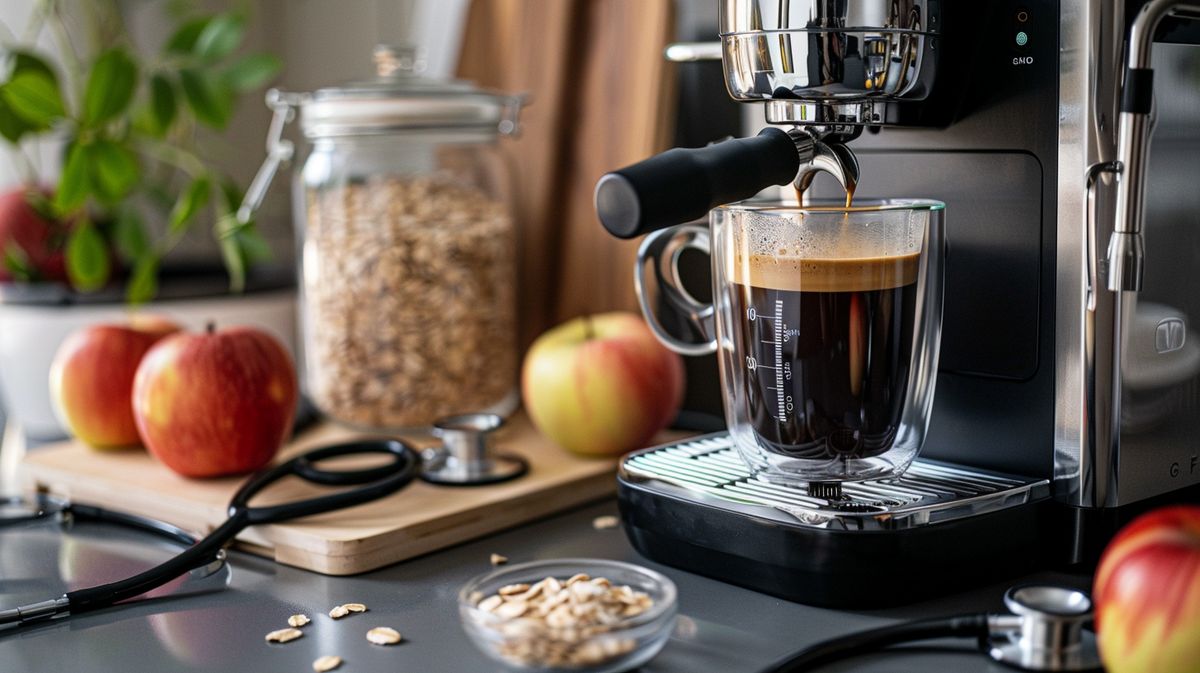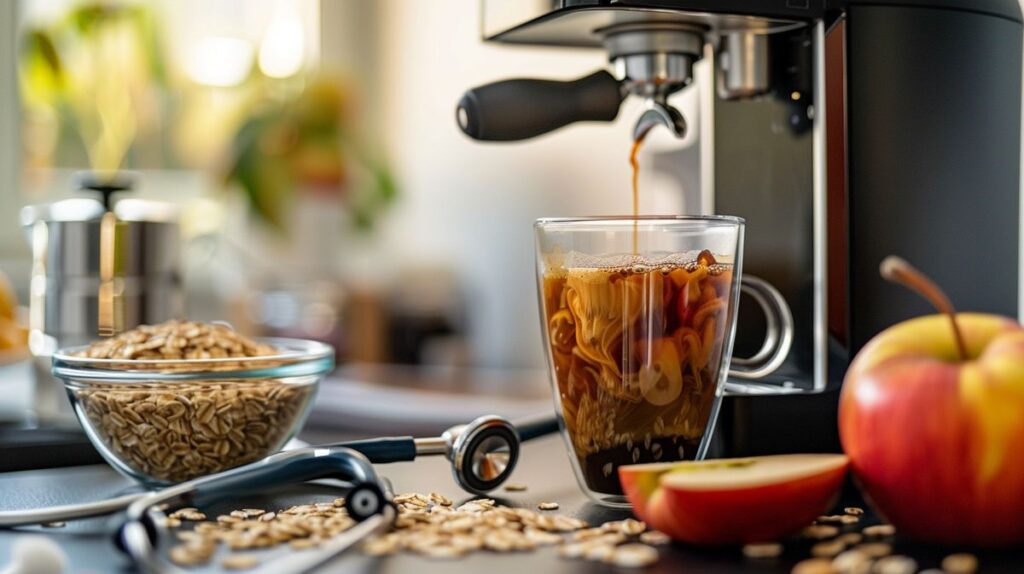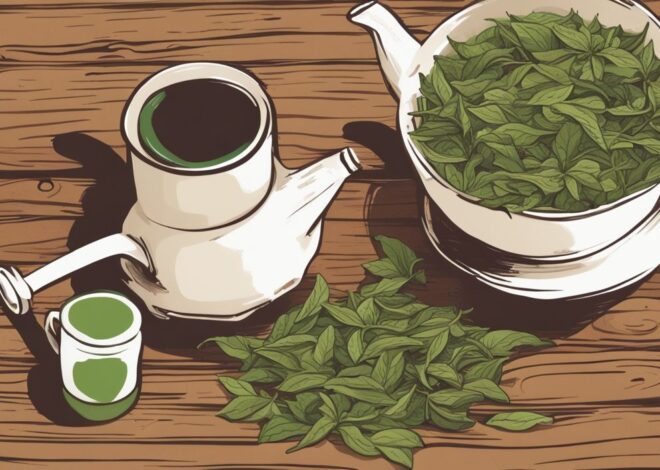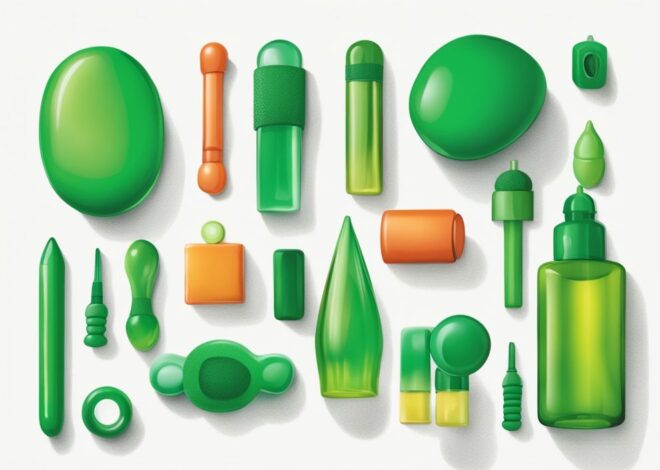
Is Keurig Coffee Healthy? Uncover Surprising Facts & Myths Today
Hold onto your mugs, dear coffee-addicts, a lively discussion is brewing! Ever paused mid-sip and thought, ‘Is my cup of Keurig coffee as healthy and harmless as it is convenient?’ Well, you’re not alone! With growing concerns about chemical contaminants and single-use plastic pollution, Keurig loyalists, health enthusiasts and eco-warriors alike are seeking the truth.
We’re diving deep into the heart of your favorite K-Cups, uncloak the myths and spill the beans on what’s hidden inside. Whether you’re looking for health implications or environmental impact, this article has your back!
So, are you ready to embark on this exciting journey of discovery about your cherished Keurig coffee? Join me, let’s demystify together.
What is Keurig Coffee?
Understanding the Keurig Brewing System
Keurig coffee, ah, the magical potion brewed in mere seconds using an ingenious single-cup brewing system! This delightful gadget has captivated coffee lovers’ hearts with its unmistakable convenience. Unlike the old-school coffee makers, Keurig’s charm lies in its handy, pre-measured capsules known as K-Cups. Think of them as coffee’s little treasure chests, each brimming with the exact amount of grounds needed to whip up a perfect cup.
Picture this: the Keurig machine, with its mystical powers, punctures the K-Cup—like a knight piercing a dragon’s armor—allowing hot water to cascade through the coffee grounds. In this whirlwind brewing process, the water extracts all those rich, aromatic flavors, delivering a steaming cup of joy directly to your hands. If you’ve ever pondered, “Is Keurig coffee healthy?” the gadget’s swift, single-serving magic certainly adds an appealing layer of efficiency to the equation!
Composition of K-Cups
Let’s delve into the mystical components of the famed K-Cups! These little marvels are made up of three key elements: a sturdy plastic cup, a layer of filter paper, and a sealing aluminum foil top. It’s like a tiny fortress, each part playing a crucial role in guarding the coffee within.
The plastic cup, oh so resilient, holds the coffee grounds snug and secure. Meanwhile, our hero, the filter paper, ensures that only the smooth, brewed coffee makes its way into your cup—no pesky grounds allowed! And let’s not forget the aluminum foil top, which seals the K-Cup hermetically, protecting the coffee from the nefarious villains—oxygen, moisture, and light—that threaten its freshness.
K-Cups are designed to be the ultimate hotshot, enduring the high temperatures required for brewing. Most are BPA-free, but whispers of concern have surfaced regarding potential chemical leaching when the plastic encounters heat. This has sparked a quest for the truth: does using K-Cups affect the healthiness of Keurig coffee? Despite these worries, their nearly impenetrable seal and robust design keep Keurig systems a top pick for reliability and consistency.
Health Benefits of Drinking Coffee
Antioxidants in Coffee
Picture this: your Keurig coffee is like a superhero, swooping in to save the day! It’s packed with antioxidants, the vigilant defenders that neutralize those mischievous free radicals wreaking havoc in your body. By sipping on Keurig coffee, you’re fortifying yourself with these little warriors, which support your overall health, as coffee is known to be one of the world’s biggest sources of antioxidants. According to Healthline, many studies on coffee and health find that it’s beneficial. They are pivotal in keeping you radiant and robust, making your Keurig coffee undoubtedly healthy in this regard.
The benefits don’t stop there! Antioxidants are like the secret sauce to a sharper brain. Studies show they can boost cognitive function, potentially fending off neurological baddies. Plus, they’re great at lowering inflammation, a nasty culprit behind many chronic conditions. And who wants those, right?
Oh, but there’s more! Regularly indulging in Keurig coffee can give your immune system a fabulous upgrade. Thanks to those high levels of antioxidants, you’re shielding your cells from oxidative stress, paving the way for a longer and healthier life.
Potential Disease Reduction and Other Benefits
Now, let’s talk serious business – the potential of Keurig coffee to ward off some heavyweight diseases. Research hints that your daily cup could lower the risk of type 2 diabetes. The magic lies in the coffee’s ability to aid in metabolic control, making it a superstar for anyone keeping an eye on their blood sugar levels.
And let’s not forget about brain health. Keurig coffee could very well be your brain’s best buddy, helping reduce the risk of Alzheimer’s and Parkinson’s diseases. The caffeine works wonders by enhancing cognitive function and protecting brain cells from wearing out. It’s like giving your brain a snazzy helmet!
Oh, and let’s not overlook mental health. That delightful caffeine buzz isn’t just about staying awake; it has mood-lifting properties too! By reducing the incidence of depression, Keurig coffee boosts your psychological well-being. Goodbye blues, hello sunny days!
Here’s the kicker – your heart loves Keurig coffee too! And if you’re curious about sustainability, check out our guide on what does eco friendly mean in the context of your favorite beverages. Studies suggest that regular coffee drinkers may benefit from lowered inflammation, reducing the risk of stroke. If you’re wondering about other wellness products, you might be asking, does the green tea mask stick work? Find out more on our website!
The anti-inflammatory properties keep your cardiovascular system running smoothly, safeguarding your heart in the process. Pretty impressive for a humble cup of joe, huh?
So, in a nutshell, the health benefits of Keurig coffee are as plentiful as they are potent. With antioxidants combating cellular damage and a variety of bonuses like disease reduction and mental health support, it’s safe to say Keurig coffee can be a healthy choice when enjoyed in moderation. Cheers to that!
Comparing Keurig Coffee and Traditional Coffee
The Same Coffee, Different Brewing Methods
Oh, the magical world of coffee! Keurig and traditionally brewed coffee, dear reader, both begin their journey from the same high-quality beans. Imagine them as twin siblings, separated by their choice of hobby: one embracing the quick and convenient world of K-Cups, while the other dives into the meticulous art of traditional brewing.
Keurig machines use those nifty little K-Cups, which are pre-measured and sealed tighter than a secret handshake. This guarantees a consistent taste and supreme convenience, perfect for those whirlwind mornings when you’re dashing out the door.
In contrast, traditional coffee brewing is akin to crafting a bespoke suit. You’ve got complete control over the water temperature, brewing time, and coffee-to-water ratio. Fancy a French press? How about a drip coffee maker? Or perhaps an espresso machine? Each method offers a different experience, catering to whatever coffee tale your taste buds wish to tell.
Freshness and Safety Differences
Now, let’s dive into the heartbeat of the matter, “is Keurig coffee healthy?” Ah, such a multilayered question! Let’s start by cracking open the freshness and safety vault.
K-Cups are hermetically sealed, acting like little coffee vaults that protect those precious grounds from oxygen, moisture, and light—enemies of fresh coffee everywhere. This means your Keurig coffee remains fresh for ages, unlike traditionally brewed coffee, which can start to feel a bit stale soon after you break the seal on that bag.
But wait, there’s more! The sealing process for K-Cups isn’t just for kicks; it flushes out bacteria and imperfections, ensuring every sip is not only delightful but also safe. These little guys are designed to safeguard the coffee’s aroma and taste until you’re ready to brew, guaranteeing a fresh cup every time—perfect for anyone with a nose for quality.
On the flip side, when you open a bag of traditional coffee, it’s like releasing a genie. It’s magical at first, but exposure to air starts a ticking timer on flavor and aroma, potentially diminishing those health perks we all crave.
Final Thoughts
So, when it comes to comparing Keurig coffee to traditional brewing, it’s a bit like comparing a well-orchestrated symphony to an invigorating jazz performance. Keurig coffee shines in convenience and consistent freshness, while traditional methods offer a playground for personalization and richer flavors.
Each brewing method has its unique answer to “is Keurig coffee healthy,” contributing to our grand coffee tableau. Whether you lean towards convenience or a tailored brew, enjoy the journey of each delicious sip!
Potential Health Concerns with Keurig Coffee
Plastic Composition of K-Cups
Ah, plastic K-Cups, these little marvels of convenience! But here’s a twist—when these plastic shells get all heated up, they might just let some chemicals sneak into your brew. While they flaunt their BPA-free status, there’s still suspense about other chemicals. A dash of heat, a sprinkle of uncertainty, and voilà – possible health risks.
BPA and Chemical Leaching Risks
Bisphenol A (BPA) is the coffee world’s notorious villain. Imagine this: your comforting cup of Joe suddenly turning into a hormonal mess because of some plastic shenanigans. When plastic decides to play with heat, chemicals that mimic estrogen can crash the party, potentially throwing off your hormonal balance. That’s why it’s super crucial to get the lowdown on every material in those K-Cups.
Understanding Safe Materials in K-Cups
Keurig swears by their BPA-free mantra. Their K-Cups, crafted with thoughtful materials, aim to dodge health risks. Yet, the plastic saga continues! Scientists, those relentless detectives, keep probing, trying to uncover the long-term health impacts of our beloved tiny pods. The jury’s still out—stay tuned!
Concerns with Aluminum Use in K-Cups
Now let’s talk aluminum—the shiny hat on your K-Cup. Ever wondered if this tiny foil top might hand off some of its metallic character to your coffee? Although the leaching is usually minor, any high dose of aluminum can link to health woes. It’s like a plot twist in your morning routine!
Coffee Contaminants: Pesticides, Herbicides, and Mycotoxins
Did you know your coffee beans might be dodging more than just sleep? Pesticides, herbicides, and insecticides might make a cameo on those beans, including the ones in your K-Cups. Yikes! Glyphosate—a probable carcinogen—along with mycotoxins like Ochratoxin A and Aflatoxin B1, are the unwelcome cast members posing extra health risks. It’s a drama worth investigating.

Environmental Impact and Health Implications
Waste Generation with K-Cups
Ever thought about where those used K-Cups end up? Imagine mountains of plastic waste huddling together in landfills. Yep, that’s right – K-Cups are the unfriendly ghosts of our coffee habits, lurking around long after we’re done sipping. They’re not biodegradable, so they just hang out indefinitely, ganging up to create environmental havoc. Is Keurig coffee healthy? Well, it’s not just our health we’re talking about here; it’s Mother Earth’s too!
Recycling Issues with K-Cups
Oh, and let’s dive into the recycling conundrum. K-Cups are like puzzle pieces; you have to separate the aluminum top from the plastic base. Sounds fun, right? Think again. This intricate dance of materials turns most of us off, leaving a trail of un-recycled waste. So, if you’re itching to know is Keurig coffee healthy, don’t just sip and forget! Consider how its recycling hiccups are piling up those plastic woes, burdening our beloved planet even more.
Environmental Damage from Coffee Production
Now, let’s sail into the coffee production seas. High coffee demand often leads to deforestation, sweeping away lush forests and their cozy habitats. Our K-Cup coffee joyride may spark the question, is Keurig coffee healthy? Well, it isn’t just about what’s in the cup, but also what’s lost in the environment. Unsustainable farming practices can strip the land bare, but the silver lining? Sustainable farming is like a gentle hug for the Earth, reducing our coffee’s overall environmental shadow.
Keurig Machine Maintenance and Cleanliness
Discover how keeping your Keurig in top shape ensures your coffee remains healthy and delicious.
Risks of Bacteria and Mold Buildup
Oh, the horror! Imagine your beloved Keurig as a cozy little hotel for bacteria and mold! These unwelcome guests thrive in the warm, moist environment inside your coffee maker, and if not dealt with, they can crash your coffee party with a wave of unpleasant illnesses and foodborne diseases. Keep your Keurig squeaky clean to send those intruders packing and ensure a healthy, delightful cup every time.
Regular Cleaning Recommendations
Ah, the sweet ritual of descaling! Every three to six months, it’s time to give your Keurig a little spa treatment. With a descaling solution or a delightful concoction of vinegar and water, follow the manufacturer’s guidelines to banish mineral buildup and keep your machine humming happily. But don’t stop there! Make it a monthly routine to pamper the water reservoir and other removable parts. This practice not only keeps bacteria and mold at bay but also preserves the pristine flavor of your coffee. Let’s face it, nobody wants to wonder “Is Keurig coffee healthy?” when savoring their morning brew.
The Role of Moderation in Coffee Consumption
How Much Coffee is Too Much?
Ah, coffee—our delightful morning elixir and trusty afternoon pick-me-up! It’s packed with health perks but, like all good things, too much of it can turn your day topsy-turvy. Imagine overdoing caffeine and ending up feeling like a jittery jackrabbit on a sugar high! Moderation, my friend, is the magic word here. Generally, up to 400 mg of caffeine per day (that’s about four cups of coffee) hits the sweet spot for most grown-ups, letting you bask in the benefits without spiraling into sleepless nights and restless days. Balance is the secret ingredient to sipping your way to a healthier life!
Suggestions for Healthier Coffee Habits
Ready to make your coffee ritual a bit more health-friendly? Little tweaks can transform your regular cuppa into a wellness-boosting brew. Here’s how:
- Opt for organic coffee: Picture this—each sip of your coffee free from harmful chemicals. By choosing organic coffee, you wave goodbye to synthetic pesticides and herbicides, and say hello to a cleaner, more vibrant beverage. It’s like giving your coffee cup a green thumbs-up!
- Use a reusable K-Cup: Ever feel bad about those pesky single-use plastics? Swap them out for a reusable K-Cup packed with freshly ground coffee. It’s a tiny change with a massive impact—not just on the planet but on your taste buds too! Plus, you get to pick top-notch, organic coffee. A win-win, don’t you think?
- Adjust coffee strength: Feeling like your heart’s racing faster than a greyhound? Maybe your coffee needs a mellow makeover. Play with the strength of your brew—use less coffee or switch to a lower caffeine variety. Customize it to your rhythm and voila, you’re all set for a perfectly balanced cup!
So, there you have it! Simple tweaks that let you indulge in your beloved Keurig coffee while keeping health at the forefront. These small steps can answer that lingering question: is Keurig coffee healthy? With a bit of mindfulness, your coffee ritual can be both delightful and nourishing. Cheers to healthier sips, one cup at a time!
Healthier Alternatives for Keurig Users
Reusable K-Cups
- Embracing reusable K-Cups? That’s like giving a high-five to Mother Nature and your health simultaneously! Not only does it cut down on pesky single-use plastics, but it also begs the question, “is Keurig coffee healthy?” Yes, it can be!
- With reusable K-Cups, you’re not just a coffee lover; you’re an eco-warrior slashing through plastic waste like a superhero. It’s an eco-friendly switch that makes your morning brew even more satisfying.
- Imagine picking the finest, organic coffee beans to fill those K-Cups. You gain the power to control your coffee’s purity and flavor! Choose the beans that sing to your health standards and taste buds.
- This method minimizes exposure to any sneaky chemicals lurking in pre-packaged K-Cups. You get to sip on a healthier blend that you can totally brag about!
Opting for Organic Coffee
- Ever wondered if going organic could help answer, “is Keurig coffee healthy?” Well, buckle up! Organic coffee is grown without those yucky synthetic pesticides and fertilizers, sparing you from unwanted chemical exposure.
- Switching to organic coffee may just be your ticket to better health outcomes. Without all those harmful agricultural chemicals, your body might just do a happy dance.
- Organic coffee isn’t just good for you; it can boost the natural health benefits of coffee’s antioxidants. Talk about a win-win! You’ll be sipping on pure goodness that supports your overall well-being.
Considering the Roast Level of Coffee
- Ah, the roast level – it’s like the mood ring of your coffee’s health perks! The level you choose can significantly influence its antioxidant content and flavor.
- Darker roasts? They might be the unsung hero in your cup. While they have slightly lower antioxidant levels, their extensive roasting process could mean fewer toxins.
- So, figuring out your perfect roast balance can help you max out those health benefits, adding another piece to the puzzle of “is Keurig coffee healthy?”
By integrating reusable K-Cups and opting for organic, thoughtfully chosen coffee roasts, Keurig users can make healthier and more eco-conscious choices. These practices not only cater to personal health but also help reduce the environmental footprint associated with single-use K-Cups. Let’s brew up a healthier and greener cup, shall we?
Conclusion
- Individual Coffee Habits Matter: The health impacts of Keurig coffee, my dear friend, depend largely on how you sip and savor it. Picture this: enjoying a cup or two is like a warm hug for your body, potentially bestowing some benefits. But gulping down too much? That’s when the coffee goblins may creep in with insomnia and jitters!
- Choice of K-Cup Selection: Imagine each K-Cup as a magical potion. The healthier the ingredients, the better the magic! Opt for organic, pesticide-free selections to keep those nasty chemicals at bay, ensuring your coffee rituals are a boost to your well-being.
- Environmental Perspectives: Ah, the saga of the single-use K-Cup! Think of it as a small villain in our eco-friendly fairy tale. These pods can pile up and wreak havoc on Mother Earth. Fear not, hero! Switch to reusable or recyclable K-Cups to turn this aforementioned villain into a mere nuisance. The planet will thank you!
In summary, the question of whether Keurig coffee is “healthy” or “unhealthy” is a trickster. It’s all about wielding the right choices in your coffee quest. By picking high-quality, organic options and embracing sustainable practices, you can turn your coffee routine into a delightful health adventure. Remember, understanding your unique needs, balancing convenience with wellness and eco-friendliness, is the magical key. So, my coffee-loving friend, “Is Keurig coffee healthy?” It’s all in your hands!
FAQ
Are There Any Health Benefits Exclusive to Keurig Coffee?
– Keurig coffee doesn’t offer any exclusive health perks compared to other brewing methods. The benefits come from the coffee itself—think antioxidants that make your heart sing, improved brain function making you feel like a genius, and even a delightful sprinkle of potential disease reduction.
How Safe are K-Cups When Used as Intended?
– When you use K-Cups as intended, they’re pretty safe! They’re BPA-free and crafted from materials given the thumbs-up by regulatory agencies. So you can sip without worry, knowing you’re minimizing health risks with each brew.
What are Some Environmentally Friendly Alternatives to K-Cups?
– Feeling green and keen? Try reusable K-Cups and opt for organic, sustainably sourced coffee! Other fun options include using a French press or a drip coffee maker with recyclable coffee filters. These choices help Mother Earth breathe easier by cutting down on waste and environmental impact.
How Often Should I Clean My Keurig Machine?
– A clean machine is a happy machine! Make sure to descale your Keurig every three to six months. A monthly scrub-down of the water reservoir and removable parts helps keep bacteria and mold at bay, ensuring your coffee experience remains both hygienic and top-notch.
Is Organic Coffee Better for Health?
– Oh, absolutely! Organic coffee is like a breath of fresh air for your health. By skipping out on synthetic pesticides and fertilizers, it offers a purer, cleaner drinking experience. This can add a lovely boost to your overall well-being compared to conventionally grown coffee—cheers to that!


